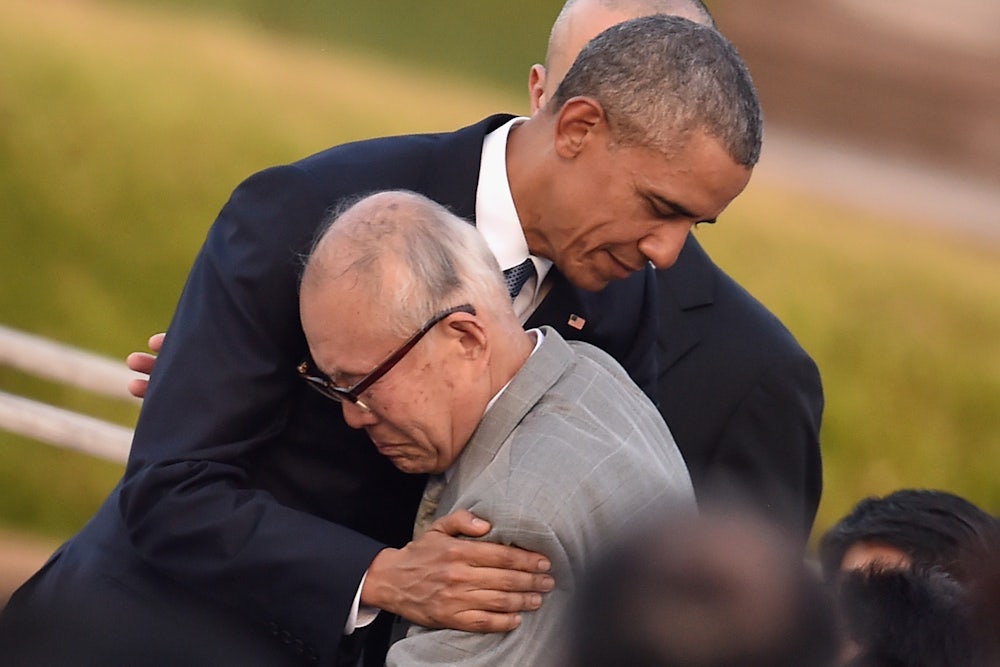It was what we’ve come to expect from the president, a poignant, sweeping, and often lyrical reckoning with history that sought to change our understanding of it. The key portion was the conclusion, in which he framed the attack on Hiroshima as a source of enduring wisdom:
The world was forever changed here, but today the children of this city will go through their day in peace. What a precious thing that is. It is worth protecting, and then extending to every child. That is a future we can choose, a future in which Hiroshima and Nagasaki are known not as the dawn of atomic warfare but as the start of our own moral awakening.
In this respect, the Hiroshima speech was a broadening of his Selma speech, an attempt to show how historical crimes, through their hold on our collective memory, have helped bridge the chasm between reality and ideals of peace and justice. It is a thematic continuation of Robert Kennedy quoting Aeschylus following the assassination of Martin Luther King, an argument that wisdom comes through pain and the “awful grace of God.”
This is bound to be well-received by the Japanese, who see themselves as uniquely attuned to the barbarity of war because of what they suffered in Hiroshima and Nagasaki. And while Obama did not formally apologize on behalf of the U.S. for dropping the bomb, his speech is being interpreted by some survivors as a de facto apology. The main criticism that could be made of Obama’s speech, however, lies precisely in this, in that it failed to couple Japan’s sense of victimhood with a clearer understanding of its own war crimes. In connecting Hiroshima to an ancient history of war, and in abstracting its lessons to a global scale, Obama subsumed the very specific sins of Japan and America in the sins of mankind.
